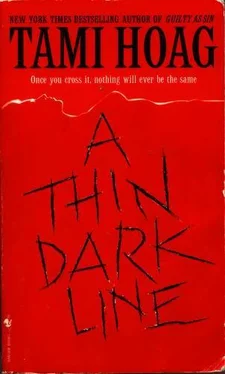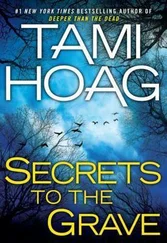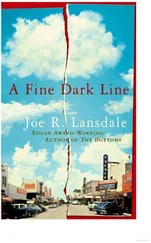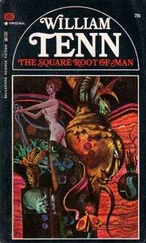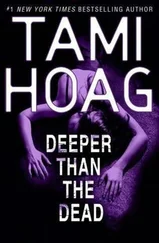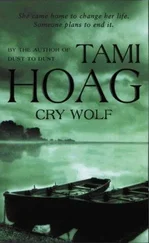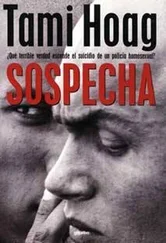"I couldn't think who else to turn to, Annie," he'd said. "The deputies wouldn't help. They'd sooner see that brute kill me. You're the only one I feel I can turn to."
The idea, while it might have overjoyed Fourcade, gave Annie no comfort. She had told Fourcade she wouldn't play the role of bait, yet here she was. Assessing the suspect in his home environment, she told herself. She wanted to see Renard with his guard down. She wanted to see him interact with his family. But if Renard perceived this visit as a social call, then she was essentially bait whether she intended to be or not. Semantics. Perception was reality, Fourcade would say.
That son of a bitch. Why hadn't he told her he had come here? She didn't like the idea of him having a hidden agenda in all this.
The driveway broke free of the trees, and a lawn the size of a polo field stretched off to the left. The expanse was nothing fancy, just a close-cropped boundary meant to discourage wildlife from getting too near the house. She passed an old carriage shed that had been painted to match the house. Fifty yards farther into the property stood the home itself, graceful and simple, painted the color of old parchment with white trim and black shutters. She parked behind the Volvo and started toward the front gallery.
"Annie!"
Marcus came out, careful not to let the screen door slap shut behind him. More of the swelling had gone out of his face, but there was still no definition to his features. Most people would recoil from the sight of him, despite the fact that he was neatly dressed in crisp khakis and a green polo shirt.
"I'm so glad you've come." He enunciated his words more clearly today, though it took an effort. He held his hands out toward her as if she were a dear distant cousin and might actually take hold of them. "Of course, I was hoping you might have called me back last night. We were all so upset."
"I got in late," she said, noting the slight censure in his voice. "By the sound of it, there was nothing to be done by that point."
"I suppose not," he conceded. "The damage was done."
"What damage?"
"The upset-to me, to my mother, most especially to my brother. It took hours to calm him. But we don't have to stand out here and discuss it. Please come in. I wish you could have accepted the invitation to dinner. It's been so long since we've entertained."
"This isn't a social call, Mr. Renard," Annie reminded him, drawing the line clearly between them. She moved into the hall, took it in at a glance-forest green walls, a murky pastoral scene in a gilt frame, a brass umbrella stand. Victor Renard peered down at her between the white balusters of the second-floor landing, where he sat with his knees drawn up like a small child, as if he thought he could make himself invisible by compacting his frame.
Ignoring his brother, Marcus led the way through the dining room to the brick veranda that faced the bayou. "It's such a lovely afternoon, I thought we could sit out."
He pulled out a chair for her at the wrought iron table. Annie chose her own chair and settled herself, careful to adjust her jacket so that the tape recorder in the pocket didn't show. The recorder had been Fourcade's idea-order, actually. He wanted to know every word that was spoken between them, wanted to hear every nuance in Renard's voice. The tape would never be admissible in court, but if it gave them something to go on, it was worth the effort.
"So, you said Detective Fourcade violated the restraining order," she began, taking out her notebook and pen.
"Well, not exactly."
"Exactly what, then?"
"He was careful to stay back from the property line. But the fact that he came that near was upsetting to my family. We called the sheriff's office, but by the time the deputy arrived, Fourcade was gone and the man wouldn't so much as take a statement." He dabbed at the corner of his mouth with a neatly folded handkerchief.
"If the detective didn't commit a crime, then there was no statement to take," Annie said. "Did Fourcade threaten you?"
"Not verbally."
"Did he threaten you physically? Did he show a weapon?"
"No. But his presence was a perceived threat. Isn't that a part of the stalking law-perceived threats?"
The fact that he, of all people, would try to make use of the statute against stalking turned her stomach. It was all she could do to school her features into something like neutrality.
"That particular law leaves a great deal of room for interpretation," she said. "As you must be well aware by now, Mr. Renard-"
"Marcus," he corrected her. "I'm aware that the authorities will bend any rule to suit them. These people have no respect for what's right. Except you, Annie. I was right about you, wasn't I? You're not like the others. You want the truth."
"Everyone involved in the case wants the truth."
"No. No, they don't," he said, leaning forward. "They had their minds made up from the first. Stokes and Fourcade came after me and no one else."
"That's not true, Mr. Renard. Other suspects were considered. You know they were. You were singled out by the process of elimination. We've been over this."
"Yes, we have," he said quietly, sitting back again. He studied her for a moment. His eyes were more visible today, like a pair of marbles set into dough. "And you did state you believe in my guilt. If that's so, then why are you here, Annie? To try to trip me up? I don't think so. I don't think you'd bother, knowing nothing I say to you could be used against me. You have doubts. That's why you're here."
"You claim you've been treated unfairly," Annie said. "If that's true, if the detectives have overlooked or ignored something that might exonerate you, why hasn't your own investigator-Mr. Kudrow's investigator-cleared up these details for you?"
Marcus looked away. "He's one man. My funds are limited."
"What is it you think we should be looking at?"
"The husband, for one."
"Mr. Bichon has been thoroughly investigated."
He changed tacks without argument. "No real effort has been made to find the man who helped me get my car going that night."
Annie consulted the notes she'd brought with her. "The man whose name you didn't ask?"
"I wasn't thinking."
"The man who was driving 'some kind of dark truck' with a license plate that 'may have' included the letters F and J?"
"It was night. The truck was dirty. I had no reason to take note of the tags, anyway."
"What little you gave us to go on was liberally put forth by the media, Mr. Renard. No one came forward."
"But did the sheriff's office try to find him? I don't think so. Fourcade never believed anything I told him. Can you imagine him wasting his time to check it out?"
"Detective Fourcade is a very thorough man," Annie said. Fourcade also had tunnel vision when it came to Renard. He had been thorough in his efforts to prove Renard's guilt. Had he been as thorough in trying to corroborate the man's claim of innocence? "I'll look into it, but there isn't much to go on."
Renard let out a sigh of relief that seemed out of proportion with her offer. "Thank you, Annie. I can't tell you how much it means to me to have you do this."
"I told you, I don't expect anything to come of it."
"That's not the point. Tea?" He reached for the pitcher that sat in the center of the table beside a pair of glasses and a small vase sprouting daffodils.
Annie accepted the drink, taking a moment between sips to look around the yard. Pony Bayou was a stone's throw away. Downstream it branched around a muddy island of willows and dewberry. Somewhere to the south, beyond the dense growth of woods where the spring birds were singing, was the house where Pam had died. Annie wondered if the burly fisherman sitting in his boat down by the fork realized that or if he might have come here because of it. People were strange that way.
Читать дальше
